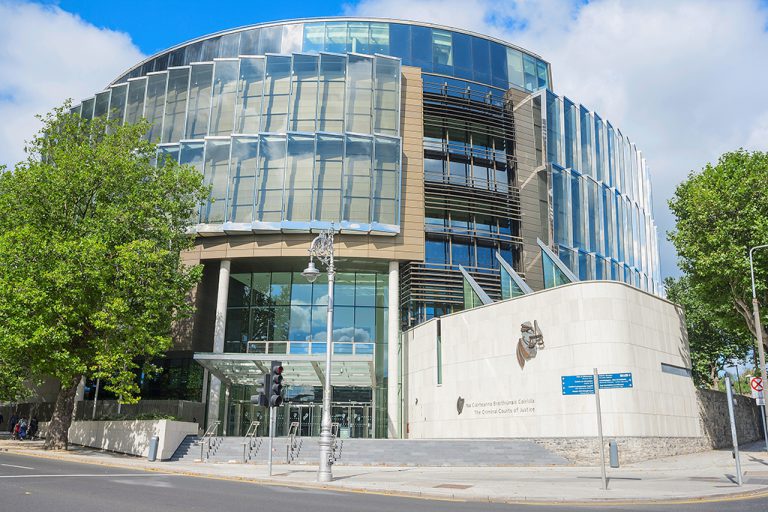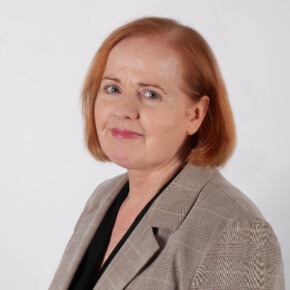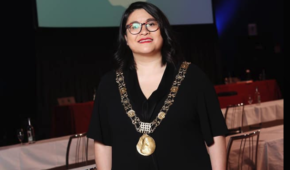Bursar of private secondary school jailed for stealing half a million euros
Dublin People 19 Jun 2025
By Natasha Reid
A bursar of a private secondary school has been jailed for one year for stealing half a million euros from the school to fund a gambling addiction.
The judge said that, despite mitigation, including her selling her home and signing over her pension to repay most of the money, the ‘egregious breach of trust’ had to be marked with a custodial sentence.
Mary Higgins (63), with an address at Hawthorn Lawn, Castleknock, was sentenced by Judge Orla Crowe at Dublin Circuit Criminal Court today.
She had pleaded guilty to stealing €500,000 from Mount Sackville Secondary School in Chapelizod between January 1, 2012, and March 23, 2017.
The court heard last month that she had spent 12 years attending the school and 24 years working there.
Judge Crowe remarked today that it was ‘an unusual situation for a woman of her age, whose life revolved around her work in that school and who developed a gambling problem’.
However, she said that Higgins was in a position of trust and had ‘committed what was an egregious breach of trust over an extended period of time’.
She described as an aggravating factor the ‘considerable amount of money’ involved.
The court previously heard that she told gardaí that she had hoped and prayed every day for ‘a big win’ to pay the school back.
At a previous hearing, Detective Garda Brendan O’Hora stated that Higgins had controlled all aspects of the school’s cash flow, was the main signatory on its bank accounts, and managed the lodgements.
When cash was received in the school, it was placed in a folder for her, and she decided how it was to be allocated.
He explained that, while parents received receipts, there was no cash receipts book, no copy of receipts was ever kept, and there was no oversight.
However, it was another employee who prepared ledger cards for each child attending the school.
This employee noticed that, from time to time, they were rewritten by Ms Higgins. She also noticed that the accounts were always late and never up to date.
The principal was informed, and, in March 2017, it was decided that an auditor would be brought in to help the defendant.
Higgins told the principal that she had taken cash from the school over time and used it for her gambling addiction.
She said she had taken about €500,000 and that she had a property she could sell.
She was so distressed that the school was concerned for her well-being and suggested she attend her GP.
She was placed on administrative leave.
The school engaged an accountant, but due to the dearth of records, the exact amount taken or the period of time concerned could not be identified with certainty.
The Director of Public Prosecutions proceeded on the basis of the defendant’s own admissions.
Det Gda O’Hora said that Higgins had cooperated fully with gardai and the forensic accountant.
She had stressed she was the only person involved in the theft and was very anxious that nobody else would be blamed.
She stated during interview that she had spent all of the money on gambling and was able to identify money having been paid to bookies.
The detective explained that she was able to hide what she’d been doing as some fees were paid in advance.
She worked a year ahead, so students were not affected, and all children attending the school had their fees paid.
She had no previous convictions and had since repaid €470,949.62.
Under cross-examination from Ronan Kennedy SC, defending, the detective agreed that this was an unsophisticated offence, where she was stealing cash that she was responsible for lodging into bank accounts.
He accepted that she’d had unfettered access to the cash due to a lack of oversight, meaning it wasn’t difficult to carry out.
Det Gda O’Hora agreed that she was in crisis and couldn’t live with herself anymore, and came forward to disclose her addiction and what she had done.
She had attended voluntary meetings with the principal and chairperson of the board of management, who had urged her to get medical advice for her gambling disorder.
Another staff member told investigators that she had always been very professional in school.
She had noticed that Higgins seemed to be betting on horses in recent years, but didn’t realise it was an addiction.
The court heard that she was very remorseful during her interviews with the gardaí.
She told them that she had spent 36 years at the school, was not married, had no children and that her job was her life.
Det Gda O’Hora added that her social life, too, and therefore her whole life, had revolved around the school.
She told them that she would hope and pray every day that she’d have a big win and pay back the money.
“The hole just seemed to get bigger,” remarked the detective.
“I believe she showed true remorse,” he added.
“Notwithstanding what she’d done, she was a pleasure to deal with.”
The court heard that she had attended the Rutland Centre for her addiction and still attends Gamblers Anonymous, where she had served as a secretary, giving her time voluntarily.
She had also engaged with counsellors for personal therapy.
Higgins returned to education in the eight years since the offence came to light, studying addiction and counselling so she could use her own experience to help others.
She’d received a postgraduate qualification from Trinity College, and a Master’s degree in counselling psychotherapy and has been providing voluntary counselling services to others.
The court heard that she had sold her home and another apartment, and had also signed over her pension to repay the money.
“Checks have been carried out, and any properties or money she had has been paid over to the school,” confirmed the detective.
She now lives with her 93-year-old mother and receives €260 per week in carer’s allowance to provide the 24-hour care she needs.
Det Gda O’Hora said that all of the money had been used to feed gambling; bank statements showed significant amounts were paid to large bookmakers, and that she had been allowed to continue to bet.
Mr Kennedy asked him if she had suffered a significant fall from grace.
“Her whole life appears to have revolved around the school, and she was highly regarded within that circle,” he said.
“I think she’s tackled her issues head-on and has gone above and beyond in tackling her issues, in terms of what I’ve seen in my career,” he added.
He said that she had worked hard for the school and that, while the offence had an impact on the school, losing her also had an impact.
He confirmed that the school had since changed its system.
“It’s a remarkably sad and tragic case,” said Mr Kennedy, explaining that she had asked him to publicly apologise to the entire school community.
He said that she was from a family of four and had been born in the United States.
Her own father had been afflicted with alcohol and gambling problems and had suffered a fatal heart attack in her presence when she was three years old.
This had led to her having emotional disturbances for which her mother had sought treatment.
The family moved to Ireland when she was six.
Mr Kennedy said that during her time at Mount Sackville, she had overseen maintenance and capital building, with €7 million in profits reinvested into the school.
Things changed in 2012, and some responsibilities were removed from her, impacting her self-esteem.
She found herself having more time on her hands and, with no hobbies, she engaged in the secretive activity of gambling.
He said that studying formulas and bets became all-consuming.
“She was living a double life,” he said.
He noted that there was a shortfall of €29,000 in what she had repaid, but said that she was committed to paying it back if made a condition of her sentence.
It would take time, however, as her only source of income is now carer’s allowance.
Counsel handed in several testimonials from current and former staff at the school, including a former principal and deputy principal.
Letters from family members were also handed in, including from her elderly mother, who spoke of her unwavering love and support to her and her regret that she didn’t see the signs of gambling.
Her brother, who had travelled from New York for the court case, wrote of how “gambling has destroyed a life so well lived in kindness”.
“She recognises the gravity of what she has done,” said Mr Kennedy, asking for leniency.
“She’s already lost her job in a very public fall from grace and has hit every branch on the way down.”
The judge asked on that occasion why the matter had only now come forward, and was told that this was due to the length of time it took to complete the forensic accountant’s report.
Judge Crowe noted today that the delay was not of her making and that this matter had been hanging over her.
She noted that she had engaged in a ‘teeming and ladling system’, with the accounts always being done on a late basis.
She approached the school after the irregularities had become apparent for the first time.
She said that the matter was sufficiently serious to be marked with a custodial penalty
Judge Crowe imposed a three-year sentence but, in light of the substantial mitigation, she suspended the final two years on her own bond of €100.
Higgins stood and entered the bond before being led away by prison officers to begin her jail term.











